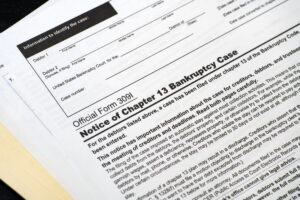Prior to the entry of the discharge order, the Chapter 7 debtors and one of their secured creditors (“Creditor”) entered into a reaffirmation agreement. Although debtors filed their case with the advice and assistance of an attorney, the attorney had not signed the declaration in support of the reaffirmation agreement. Creditor and debtors, on their own behalf, filed a joint motion to requesting a hearing to consider approval of the reaffirmation agreement. The Court denied that request because debtors were represented by an attorney during the course of negotiating the reaffirmation agreement.
Following the entry of the discharge order, debtors’ attorney moved to withdraw from representing the debtors. The court authorized the attorney’s withdrawal. A month later, Creditor and debtors filed a second joint motion wherein they asserted that the debtors were then pro se and requested the court to set a hearing to consider approval of the same reaffirmation agreement under 11 U.S.C. §524(c)(6)(A).
The Court denied the second joint motion. The Court relied on its opinion in In re Shepard, 453 B.R. 416 (Bankr.D.Colo 2011) (Shepard I). In Shepard I, the court explained its conclusion that an attorney representing a Chapter 7 debtor is presumed to represent the debtor during the course of negotiating a reaffirmation agreement, regardless of whether he or she filed the declaration required by section 524(c)(3). The court ruled that the attorney’s later withdrawal from representation of debtors did not change the court’s conclusion that the attorney represented the debtors during the course of negotiating the reaffirmation agreement. Thus, no hearing could be set.
[gview file=”http://www.cob.uscourts.gov/opinions%5C10-41987abc.pdf”]


